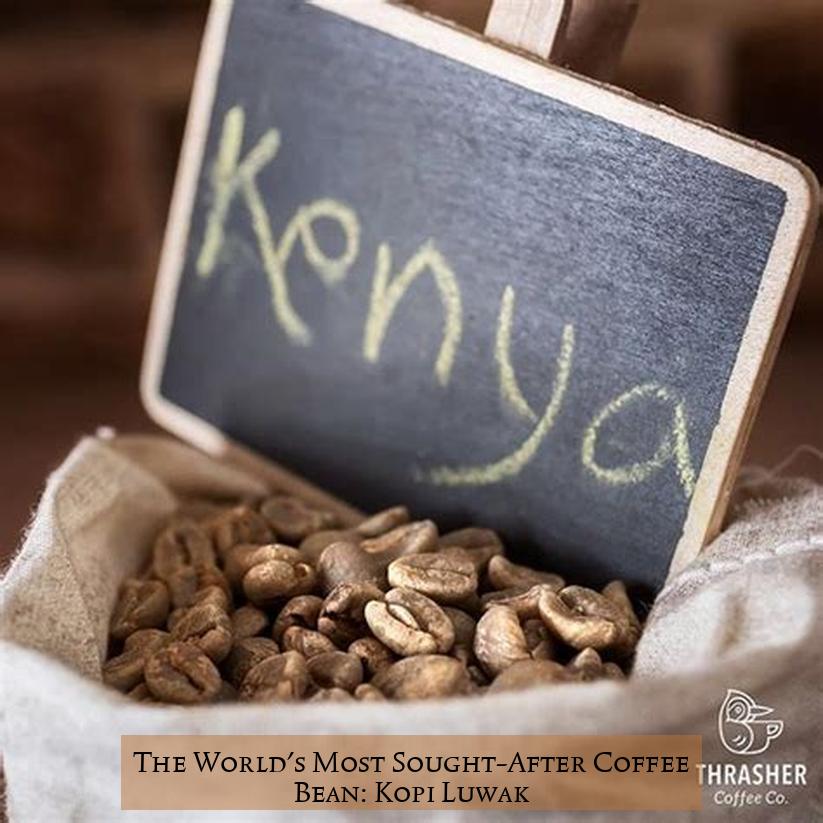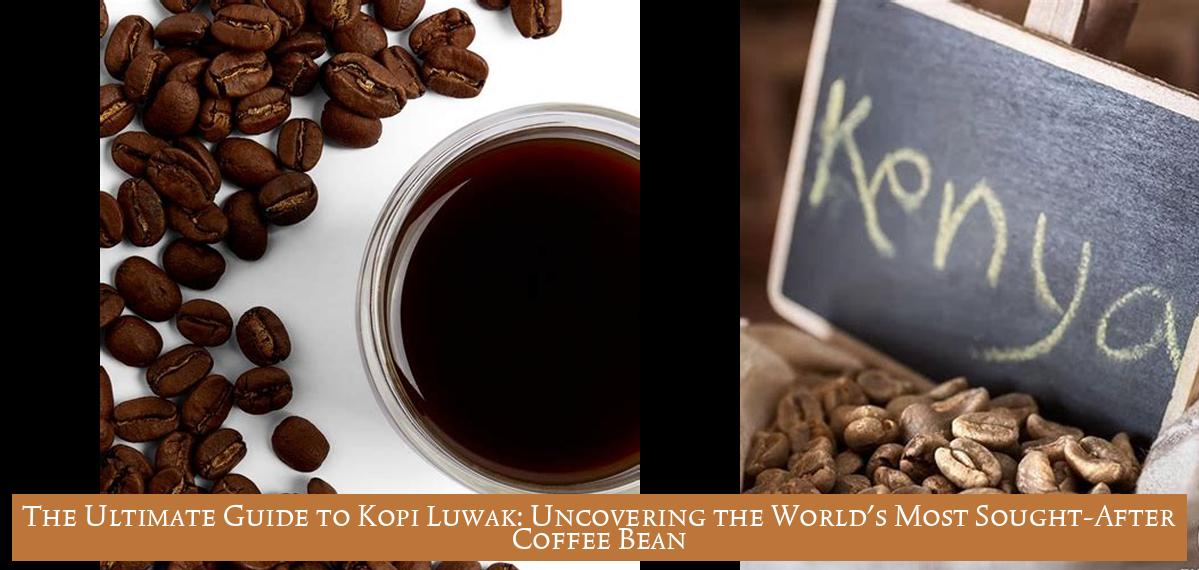Unlocking the mystery behind the world’s most sought-after coffee bean is like discovering the holy grail of caffeine connoisseurs. Yes, we’re talking about none other than Kopi Luwak – the coffee bean that has sparked a frenzy among enthusiasts and has a price tag to match its elusive reputation. Join us as we delve into the intriguing world of this prized coffee bean, unraveling the secrets behind its allure, the hefty pursuit of the perfect cup, and uncovering the art of brewing the most exceptional coffee experience. Let’s embark on this aromatic adventure together!
Key Takeaways
- Kopi Luwak, also known as Civet Coffee, is the most sought after and expensive coffee in the world.
- Arabica coffee beans are the most sold coffee beans globally.
- Black Ivory Coffee is considered the rarest coffee in the world, with a very limited allocation.
- The highest quality coffee beans in the world include Brazilian, Ethiopian Harrar, Panamanian, Guatemalan, Tanzania Peaberry, Mexican, Brazilian Bourbon Santos, and Indonesian varieties.
- Some of the most expensive coffees in the world include Finca El Injerto Coffee, Hacienda La Esmeralda, Kopi Luwak Coffee, Saint Helena Coffee, Molokai Coffee, Jamaican Blue Mountain Coffee, and Fazenda Santa Ines Coffee.
- Kopi Luwak is produced from coffee beans that have been partially digested by the Indonesian palm civet, contributing to its unique and sought after flavor profile.
The World’s Most Sought-After Coffee Bean: Kopi Luwak

Unveiling the Enigmatic Kopi Luwak
In the realm of coffee connoisseurship, one name stands above the rest: Kopi Luwak. This enigmatic brew, originating from the Indonesian archipelago, has captivated the taste buds of discerning coffee lovers worldwide, earning its reputation as the most sought-after coffee bean. Its allure lies in its unique production process, which involves the partial digestion of coffee cherries by the Asian palm civet, a nocturnal mammal native to Southeast Asia. The civet’s digestive enzymes impart a distinct flavor profile to the beans, resulting in a smooth, earthy, and subtly sweet cup of coffee that commands a premium price.
The Curious Case of Civet Coffee
The production of Kopi Luwak is a labor-intensive process that begins with the civet’s nocturnal foraging expeditions. These elusive creatures selectively consume ripe coffee cherries, drawn to their sweet pulp. As the cherries pass through the civet’s digestive system, the outer flesh is broken down, while the coffee beans remain largely intact. However, during this process, the civet’s enzymes interact with the beans, imparting a unique flavor profile that sets Kopi Luwak apart from all other coffees.
Once the cherries have been excreted, they are collected and processed to extract the coffee beans. The beans are then roasted and ground, ready to be brewed into a cup of the world’s most sought-after coffee. The limited availability of Kopi Luwak, coupled with its distinctive flavor and labor-intensive production process, contributes to its high price tag, making it a coveted delicacy among coffee enthusiasts.
Beyond Kopi Luwak: Exploring Other Exceptional Coffee Beans
While Kopi Luwak holds the title of the most sought-after coffee bean, the world of coffee offers a diverse range of exceptional varieties that cater to every palate. Arabica beans, known for their smooth, balanced flavor, dominate the global coffee market, accounting for over 60% of production. Ethiopian Harrar beans, with their distinctive fruity and floral notes, and Panamanian Geisha beans, renowned for their delicate aroma and complex flavor profile, are highly prized by coffee aficionados.
Guatemalan Antigua beans, characterized by their rich, chocolatey flavor, and Tanzanian Peaberry beans, with their unique round shape and intense aroma, are also among the world’s most sought-after coffees. Mexican Chiapas beans, known for their nutty and spicy notes, and Brazilian Bourbon Santos beans, with their classic, well-rounded flavor, complete the list of the world’s highest quality coffee beans.
The Pricey Pursuit of the Perfect Cup
Unveiling the World’s Most Expensive Coffees
>> Mastering the Art of Espresso Grind: Avoiding the Pitfalls of Grinding Too Fine
The pursuit of the perfect cup of coffee often leads to the exploration of rare and expensive varieties. Finca El Injerto Coffee, hailing from Guatemala, holds the distinction of being the world’s most expensive coffee, with a staggering price tag of $500 per pound. Hacienda La Esmeralda, a Panamanian coffee, commands a price of $350 per pound, while Kopi Luwak, the enigmatic Indonesian brew, fetches around $160 per pound.
Saint Helena Coffee, grown on the remote island of Saint Helena in the South Atlantic Ocean, is another highly sought-after variety, with a price tag of $79 per pound. Molokai Coffee, cultivated on the slopes of Mount Kamakou in Hawaii, and Jamaican Blue Mountain Coffee, renowned for its smooth, rich flavor, both retail at around $50 per pound. Fazenda Santa Ines Coffee, a Brazilian variety known for its nutty and chocolatey notes, completes the list of the world’s most expensive coffees.
Deciphering the Factors Behind High Prices
The exorbitant prices of these exclusive coffees can be attributed to a combination of factors, including limited production, unique flavor profiles, and the allure of rarity. The labor-intensive production process of Kopi Luwak, coupled with its limited availability, drives its high price. Similarly, the small-batch production and exceptional flavor of Finca El Injerto Coffee contribute to its premium status.
The mystique surrounding rare coffees, such as Saint Helena Coffee and Jamaican Blue Mountain Coffee, further elevates their value. These coffees are often associated with exclusivity and luxury, making them highly sought-after among discerning coffee enthusiasts willing to pay a premium for the ultimate coffee experience.
Brewing the Perfect Cup: Tips and Techniques

Mastering the Art of Coffee Preparation
To fully appreciate the nuances of the world’s most sought-after coffee beans, meticulous attention to brewing techniques is essential. The grind size, brewing method, and water temperature all play crucial roles in extracting the optimal flavor from each bean. For a balanced cup of coffee, a medium grind is recommended, allowing for a consistent extraction.
The choice of brewing method depends on personal preference, with pour-over, French press, and espresso machines offering distinct flavor profiles. Pour-over methods, such as the V60 or Chemex, produce a clean and nuanced cup, while French press brewing yields a bolder, more robust flavor. Espresso machines, on the other hand, deliver a concentrated, intense shot of coffee.
Water temperature is another critical factor, as it affects the extraction rate of the coffee. Ideally, water should be heated to just below boiling point, around 195-205 degrees Fahrenheit. Using freshly drawn, filtered water is also recommended to avoid any impurities that may alter the coffee’s taste.
Experimenting with Brewing Parameters
The joy of coffee lies in its versatility, allowing for endless experimentation with brewing parameters to suit individual preferences. Adjusting the coffee-to-water ratio can alter the strength of the brew, while varying the grind size can influence the extraction rate. Different brewing methods may also require specific adjustments to achieve the desired flavor profile.
For you, Unveiling McDonald’s McCafe Espresso: The Art of Premium Arabica Beans
For those seeking a truly immersive coffee experience, exploring the world of coffee beans beyond Kopi Luwak is highly recommended. The diverse range of flavors and aromas offered by different varieties provides an opportunity to discover new favorites and expand one’s coffee knowledge. With careful attention to brewing techniques and a willingness to experiment, every cup of coffee can be a journey of discovery and delight.
What is Kopi Luwak?
Kopi Luwak, also known as Civet Coffee, is the most sought after and expensive coffee in the world. It is produced from coffee beans which have been partially digested by the Indonesian palm civet and then excreted, contributing to its unique and sought after flavor profile.
What is the most sold coffee bean?
Arabica coffee beans are the most popular variety worldwide.
What are the rarest coffee beans?
Black Ivory Coffee is considered the rarest coffee in the world, with a very limited allocation. It is sold primarily to select five-star hotels.
What is considered the best coffee bean in the world?
The highest quality coffee beans in the world include Brazilian, Ethiopian Harrar, Panamanian, Guatemalan, Tanzania Peaberry, Mexican, Brazilian Bourbon Santos, and Indonesian varieties.
What are the 10 most expensive coffees?
Some of the most expensive coffees in the world include Finca El Injerto Coffee, Hacienda La Esmeralda, Kopi Luwak Coffee, Saint Helena Coffee, Molokai Coffee, Jamaican Blue Mountain Coffee, and Fazenda Santa Ines Coffee.

